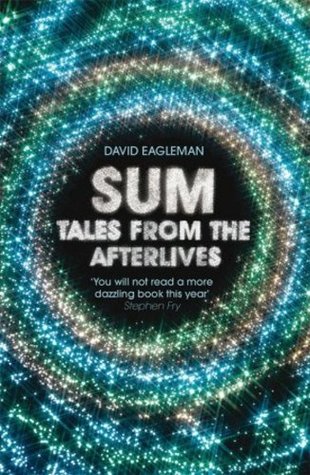More on this book
Community
Kindle Notes & Highlights
So God sits on the edge of Her bed and weeps at night, because the only thing everyone can agree upon is that they’re all in Hell.
The missing crowds make you lonely. You begin to complain about all the people you could be meeting. But no one listens or sympathizes with you, because this is precisely what you chose when you were alive.
you cannot appreciate the destination without knowing the starting point; you cannot revel in the simplicity unless you remember the alternatives.
Meaning varies with spatial scale. So we have concluded that communicating with her is not impossible, but it is pointless.
And God consoles Himself with the thought that all creation necessarily ends in this: Creators, powerless, fleeing from the things they have wrought.
And that is the curse of this room: since we live in the heads of those who remember us, we lose control of our lives and become who they want us to be.
everything that creates itself upon the backs of smaller scales will by those same scales be consumed.
“It is not the brave who can handle the big face, it is the brave who can handle its absence.”
Although He doesn’t say it, everyone knows what He’s thinking when He retires to His bed at night: that one of His best gifts—the ability to have faith in an unseen hereafter—has backfired.
Here in this Purgatory, all the people with whom you’ve ever come in contact are gathered. The scattered bits of you are collected, pooled, and unified. The mirrors are held up in front of you. Without the benefit of filtration, you see yourself clearly for the first time. And that is what finally kills you.
Over the millennia, God has grown bitter. Nothing continues to satisfy. Time drowns Him. He envies man his brief twinkling of a life, and those He dislikes are condemned to suffer immortality with Him.
In theory, you could choose to watch anything: the private activities of single people in their apartments, the unfolding plans of saboteurs, the detailed progress of battlefields. But, instead, we all watch for one thing: evidence of our residual influence in the world, the ripples left in our wake.
Meanwhile, they kick the dirt and protest. They don’t understand they’ve been blessed with insulation from the future, while the sinners are cursed in the blue-green glow of the televisions to witness every moment of it.
It’s a fact of afterlife: don’t be surprised to discover that after decomposition into your different ages, the different yous tend to drift apart.
They conclude with a shudder that the Earthly you is utterly lost, unpreserved in the afterlife. You were all these ages, they concede, and you were none.
A consequence of this cosmic scheme may surprise you: when you die, you are grieved by all the atoms of which you were composed. They hung together for years, whether in sheets of skin or communities of spleen. With your death they do not die. Instead, they part ways, moving off in their separate directions, mourning the loss of a special time they shared together, haunted by the feeling that they were once playing parts in something larger than themselves, something that had its own life, something they can hardly put a finger on.
Among all the creatures of creation, the gods favor us: we are the only ones who can empathize with their problems.
In the end, spent, the quark slows to a halt at the center of infinite emptiness. Here it takes its time, catching its breath. It will wait several thousand millennia until it regains the stamina and optimism to try again. So there is no afterlife, but instead a long intermission: all of us exist inside the memory of the particle, like a fertilized egg waiting to unpack.
And thus your punishment is cleverly and automatically regulated in the afterlife: the more you fall short of your potential, the more of these annoying selves you are forced to deal with.
We are the moment of least facility for the atoms. And in this form, they find themselves longing to ascend mountains, wander the seas, and conquer the air, seeking to recapture the limitlessness they once knew.


